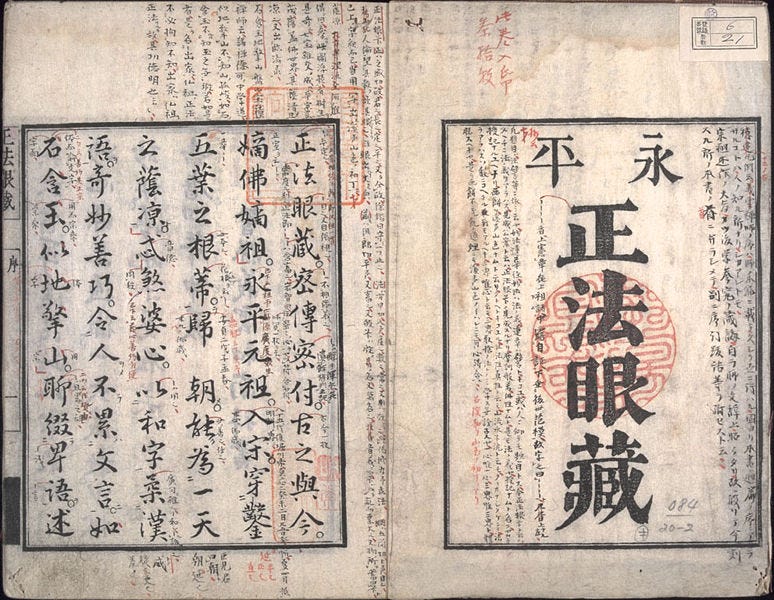diasporic dissonance
reflection on words and language, pt. 2

Despite this being my chosen medium, I often find words and language don’t do enough. I’ve been reading Doppelganger: A Trip into the Mirror World by Naomi Klein. It’s kind of hard to succinctly summarize but in short: it is about how Naomi Klein, a writer, often gets confused with Naomi Wolf, also a writer, which for years is a slight irritation but innocuous enough. Things take an absurd turn when Naomi Wolf goes down the right-wing rabbit hole during the first year of the COVID pandemic and starts saying absolute bonkers things and people begin confusing things Naomi Wolf said for what Naomi Klein said. It’s also about internet culture!
In the chapter “Ridiculously Serious, Seriously Speechless”, Naomi Klein is grappling with the distance between words and action and how certain words have been cheapened:
That is the real source of my speechlessness in this unreal period: a feeling of near violent rupture between the world of words and the world beyond them. In recent years, left social movements have won huge victories transforming the way we talk about all kinds of issues - billionaires and oligarchic rule, climate breakdown, white supremacy, prison abolition, gender identity, Palestinian rights, sexual violence - and I have to believe that those changes represent real victories, that they matter. And yet, on almost every front, tangible ground is being lost. Changing the discourse did not prevent the world's ten richest men from doubling their collective fortunes from $700 billion to $1.5 trillion in the first two years of the pandemic; it did not stop police forces from increasing their budgets while teachers have to pay for basic supplies out of pocket; it did not prevent fossil fuel companies from collecting more billions in subsidies and new permits; it did not prevent the Israeli police forces from attacking the funeral of the revered Palestinian American journalist Shireen Abu Akleh after a bullet that was almost certainly fired by an Israeli soldier took her life.
"We did change the discourse ..." a friend remarked to me the other day, and then the thought trailed off. We did. But we appear to have done it at a precise moment when words and ideas underwent a radical currency devaluation, a crash connected, in ways we have barely begun to understand, to the torrent of words in which we are swimming on those screens. A torrent that assiduously amplifies the most operatic forms of virtue performance and the most cynical forms of pipiking. Angela Davis, in the spring of 2022, put the tension of the historic post-George Floyd protests like this, “In many way, nothing has really changed at all, but at the same time, everything has changed.”
Doppelganger: A Trip Into the Mirror World by Naomi Klein
I really feel this speechlessness and sense that words would fail to encapsulate the weight of the past couple of months. Emotionally, summer felt like one long heat wave. I mean this both figuratively and literally, as summer 2024 exceeded the last summer as The Hottest Year on Record.1 In the crucible of those months were various personal and political heartbreaks. I stumbled about in the way one does when feeling decidedly Mentally Unwell, curdling my thoughts into lacerating koans.

When the heat did finally break and the season changed, I didn’t get relief. Instead, new heartbreak arrived when my Aunt Fenny passed away unexpectedly. What was supposed to be a short hospital stay marked the end of her glow on Earth, just two months after receiving a stage 4 cancer diagnosis. I flew to Kenya to be with my family who were, and are, still in varying degrees of shock.

In what I can only hope is the denouement of this period of time in my life, the koans remain persistent but thankfully less lacerating. Of late, language is the major underpinning of my questioning, particularly: immigration and language, the dissonance of being tethered to a culture inherent and simultaneously removed, what is lost and gained when we leave home, and what words can and cannot do.
In all its emotional valences, language is the most immediate tool we have to communicate with the world. It is the primary vehicle for how we express ideas and emotions. In our interpersonal connections, we use language to build relationships, to say “that hurt me” or “that feels good”. In political praxis, we use words to move others toward taking a certain action, like voting or protesting, or coalition building (Race Class Narrative is an excellent framework for this) or, more insidiously, stoking fear and creating division (ie. On first listen, I hear gibberish when I listen to Donald Trump speak but when I listen closely I hear the subtle and blatant dog-whistles meant for his base). Weaving and contorting, we make attempts to syntax our way into relationship with one another.
Language and words have been the genesis of some of my deepest connections, whether through the text of a play during years of theater or feeling the spark of attraction when discussing a book on a date. It has also been one of the greatest sources of disconnect in my foundational relationships as I never learned Swahili, the language in which my family primarily communicates.
Years back on a visit to Kenya, one of my relatives told me “You used to speak great Swahili.” This seems dubious to me. I have no memory of speaking Swahili and perhaps they were just trying to make me feel better for my present-day inept fluency in Swahili and next to zero comprehension of my native language Ekegusii, the language of the Kisii people, one of the 40+ tribes that make up Kenya’s population. While I have no memory of speaking Swahili, I do have memory, some of my first, of life in Nairobi, at the time I lived there as a young child. Specifically, I remember my uniform, the journey to and from school, eating cabbage in the lunch room, bus rides. Swahili became the national language of Kenya in 1970, seven years after its independence. In 1985, it became compulsory to teach Swahili Language in primary and secondary schools. I was there in the early-to-mid 1990s so presumably, I would have received some period of elementary Swahili. This timeline paired with my memories tells me it is possible that I did, at a time, speak some Swahili rather well.
Any fluency I might have gained in those years was lost when I firmly entered the education system in the United States. Instead of retaining Swahili, I learned the tone and cadence of my parents’ voices. Where I didn’t understand what my mother was saying on the phone, I was able to decode what mixture of plosives and intonations meant about what my parents were feeling. Certain sounds from the back of the throat meant agitation, the repetition and lilt of voice that marks a phone call ending.

Today, 18+ years in the din of Swahili, paired with my now rudimentary understanding of the language, I can catch on to the subject of conversations in Swahili but I miss the details and nuance of what is said. It is better than nothing, but the heightened state of listening creates mental fatigue, which left unchecked and uneased, deteriorates into my most unskillful places of hyper-interiority or emotional outbursts. I would like to think that this knowledge would provide me a tangible answer on what my healing work looks like in this season but these things aren’t so 1:1. In the way of koans, the question of language has led me toward some insights and understanding of my consciousness but has also revealed layers to peel back, more intangibility to sit with.
My garden friend, Meagan, shared an essay with me over the summer, “Poetics of Dislocation: Trauma, Language, Memory” by Meena Alexander. In it, she writes about a “code of traumatic recovery”, that “There is a zone of radical illiteracy out of which we translate our selves in order to appear, in order to be in place.”
I would like to write more about the inchoate, things learned before, with and of language, how these things often speak before us, with us, for us. But I’m tired! And right now, if anything sounds like a bit of a “No” in my body, I’m trying to go for it. So I’ll end here. Much love.
xo Jessica
VOTE ON THE WORKING FAMILIES PARTY LINE
I plan to vote for Harris/Walz on the Working Families ballot line this election. The Working Families Party is a national grassroots political party building a multiracial movement outside of the two-party system. A vote on the WFP party line counts the same as a vote on the Democratic line and sends a message that we want a government that sides with workers and consumers, not big banks and billionaire CEOs + that we want a viable third-party option in the U.S. The Working Families Party is national! You can find a breakdown of WFP candidates by state here.
Need a voting guide? If you’re voting in New York state check out the guide from Soft Power Vote. If you’re voting elsewhere, find out what is on your ballot before Election Day by checking vote411.org.
Hit me up with any questions you have about Working Families Party or if you have a recommendation for a local Texas voting guide that I can share. 🗳️
Where to find me.
You can find me weekly at Heal Haus, five days a week at Arena, and often at 462 Halsey Community Farm.
🌞
Check out The Warmest Year on Record, an oral history project about climate change and Brooklyn community gardens: https://www.thewarmestyearsonrecord.com/



